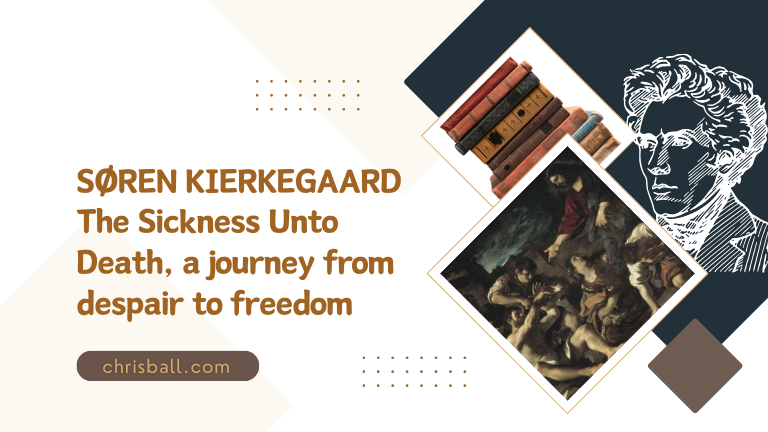A few years ago, I listened to a podcast in which the speaker discussed a book, “The Sickness Unto Death” by Søren Kierkegaard. I found the discussion extremely interesting and looked up information on Kierkegaard. Søren Kierkegaard was a Danish philosopher, theologian, poet, social critic, and religious author who lived from 1813 to 1855. He is widely considered the father of existentialist philosophy.
So, I decided to buy the book and read it for myself. Unfortunately, I found the language archaic and very difficult to follow and understand. I then decided to return to the original Danish and translate the book using various translation tools and cross-referencing with other English translations. It soon turned into a long project, translating the book line-by-line, often word-by-word, going over it multiple times and tweaking the translation bit-by-bit until I could fully understand the book.
This has been a labour of love for over a year, and I am approaching the end now. So why is this book captivating me, why and I so inspired by it?
“The Sickness Unto Death,” one of Søren Kierkegaard’s most important works, stands as a profound examination of despair, not merely as a fleeting emotion, but as a deep-rooted spiritual malady. This work delves into the human struggle for self-realisation and the quest for an authentic existence, making it one of his most inspiring works.
Central to the book’s message is the understanding of despair as an internal, existential struggle, a condition of the self. Kierkegaard shifts the focus away from external sources of despair, directing it instead towards the internal misalignment within an individual’s self, particularly in relation to their eternal essence. This introspective perspective is an invitation for us to look inward for understanding and solutions.
Kierkegaard places great emphasis on individual responsibility and potential, something I see as key to self-realisation and self-empowerment. He posits that each person is responsible for their own self, and this responsibility is crucial to their existence. This notion of a personal journey towards self-realisation is portrayed as deeply personal and unique to each individual, inspiring a call to personal authenticity and integrity.
The concept of the “leap of faith” is another pivotal aspect of Kierkegaard’s philosophy. Despite acknowledging the inherent despair and anxiety in the human condition, he suggests embracing faith and hope through a personal and committed relationship with God as a solution. This leap is an act of embracing the absurd and transcending despair, offering a ray of hope in the face of life’s uncertainties. For many of us, what we are looking for is hope, something that will provide us with peace and joy in our lives.
Kierkegaard also inspires through his recognition and acceptance of human limitations. Understanding that despair partly stems from the inability to fully grasp or align with our eternal nature, he invites us to accept our finite existence with humility and honesty.
Despite its focus on despair, “The Sickness Unto Death” is underpinned by an optimistic view of transformation. Kierkegaard implies that acknowledgement and understanding of despair can lead individuals to a path of true selfhood and spiritual peace. This transformation is a call to personal growth and existential courage.
Lastly, the work’s profound influence on existential thought makes it a cornerstone text for understanding human existence. It encourages us to confront existential dilemmas head-on and find meaning in the personal struggle for authenticity.
In essence, “The Sickness Unto Death” is a compelling exploration of the human condition, emphasising the journey towards individual responsibility, authenticity, and the potential for personal and spiritual transformation through the acceptance and transcendence of despair.
In translating this book, I have learned so much about the nature of despair, that even people who say they are happy are often focused only on the surface of their lives; only when we delve deeply into the core of our existence can we see the truth of our state.
There is so much more I can write based on this book, and I will do that more over the coming weeks.
